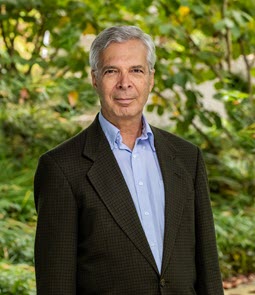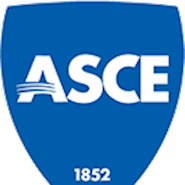
Peter R. Jaffé, the William L. Knapp ’47 Professor of Civil Engineering in the department of civil and environmental engineering at Princeton University, has been named a fellow by the ASCE Board of Direction.
Jaffé’s background is in chemical engineering, and he has held many positions at Princeton, joining the faculty of the Department of Civil Engineering at Princeton University in 1985. Before that he was a faculty member at the Universidad Simón Bolívar, in Venezuela. He held visiting positions at the Venezuelan Research Institute, the International Institute for Applied Systems Analysis in Austria, the University of Auckland, and the Ecole des Mines D’Albi, and was an AT&T Industrial Ecology Fellow.
He has served on numerous committees and panels, including the National Research Council, EPA, NIH, NSF, DOE, the Singapore Expert Panel of the Environment and Water Industry Development Council, the Korean Institute of Geoscience and Mineral Resources, and others. He is an elected fellow of the American Geophysical Union and was appointed as a Board Certified Environmental Engineering member of the American Academy of Environmental Engineers by Eminence.
Jaffé’s research interests relate to the physical, chemical, and biological processes that govern the transport and transformation of pollutants in the environment, and their application toward the remediation of contaminated systems. His research has focused extensively on biological and chemical pollutant dynamics in porous media; simulation and analysis at the watershed scale of soil contamination processes and nutrient cycling; nitrogen cycling at the watershed scale; and dynamics of trace metals and radionuclides in sediments, wetland soils, and groundwater.
Areas of current emphasis include biological defluorination of per- and polyfluorinated alkyl substances (PFAS) and understanding novel biological processes for anaerobic ammonium oxidation, focusing from field-scale transformations to applications for wastewater treatment. Given his work on PFAS biodegradation, he was invited to testify at the joint hearing “Forever Chemicals: Research and Development for Addressing the PFAS Problem” of the House Subcommittee on Environment and the House Subcommittee on Research and Technology, of the House Committee on Science, Space, and Technology, December 7, 2021.
His laboratory was the first to report that ammonium could be oxidized under iron-reducing conditions. A process was later termed Feammox and plays an important part in the Nitrogen cycle. This discovery was then followed by the discovery, isolation, and characterization of a bacterium responsible for this process, Acidimicrobium sp. Strain A6. This novel organism was shown to be able to degrade the very stable perfluoroalkyl substances, such as PFOA and PFOS, which had been called “forever chemicals,” pointing the way for potential bioremediation strategies of these challenging emerging contaminants, which is the current focus of his research.
Jaffé obtained a doctoral degree in environmental and water resources engineering from Vanderbilt University in 1981.



